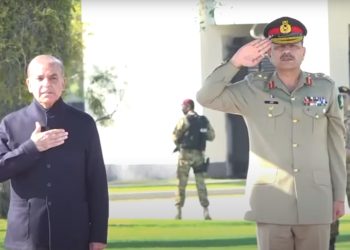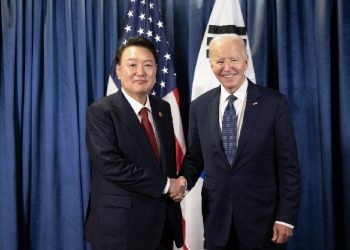Islamabad: The whole spectrum of Pakistan’s political future, represented by its political leaders, hangs in the balance of one letter, which has changed the overall outlook of the country, plunging it into what is being called a ‘constitutional coup’ and a ‘democratic disaster’.
Pakistan President Arif Alvi has dissolved the assemblies on the recommendation of Prime Minister Imran Khan, who shocked everyone with his decision to dissolve the assemblies, minutes after the Deputy Speaker of National Assembly, Qasim Shah Soori, cancelled the no-confidence motion from being put to vote, giving reference to the the same threat letter Khan had flagged during the March 27 rally, terming it as a written threat from a foreign country, which he said wanted a regime change in Pakistan and was using opposition parties to ensure that the no-confidence voting ousted Khan.
While the rulings of the Deputy speaker, the Prime Minister and the President are under scanner at the Supreme Court, the alleged threat letter, its content and legality have not only sparked widespread debate, but have also become a major point of argument as Khan’s supportive votes in the Parliament were about 143, while Opposition votes against him were about 199.
Therefore, had the voting taken place, Khan would certainly have been de-seated by the Opposition benches.
Khan has said that he took the decision after finding out that an international conspiracy was being hatched against his government, adding that the Opposition parties were acting as handlers and implementers of the foreign agenda, details of which were reportedly received by him through Pakistan’s ambassador in Washington, Asad Majeed.
“The letter, which is an official document, stated that if Imran Khan’s government is taken off power through the no-confidence motion, every mistake of Pakistan will be forgiven. But if he remains as the country’s Prime Minister, the US-Pakistan relations will suffer, which will have dire consequences for Pakistan,” Khan had said while giving details about the content of the letter.
Khan claimed that endorsement of the National Security Committee (NSC) meeting, which comprises heads of the armed forces and other cabinet members, is enough evidence that the letter is true and holds revelations about a foreign conspiracy.
Khan also went on to name the United States as being one of the main countries to hatch this conspiracy against him, which was meeting Opposition leaders for the same, a claim that the US has repeatedly termed as baseless.
Opposition parties, on the other hand, claim that the letter is fake which has been written in the Pakistan Foreign Office with an aim to malign the Opposition and use it as a safe gateway for Khan and declare his Opposition as disloyal and traitors.
The letter, as per the government’s standing, holds sensitive value, which is why it needs to be kept confidential. However, it seems that Khan and his party members are sharing its content in the public domain on a daily basis.
The Opposition parties have demanded the DGISI and Army chief to come out with clarity on the much-debated threatening letter, as it has become the prime reason for Khan to dissolve the assemblies and term the Opposition leaders as traitors.
“I demand the DGISI, DGISPR and Army chief, as members of the National Security Committee (NSC), to come out with clarification about the letter. Tell us if it mentions our names as perpetrators of the so-called foreign conspiracy. If so, declare us as traitors and have us all hanged,” said Opposition leader and President of the Pakistan Muslim League-Nawaz (PML-N), Shehbaz Sharif.
Now, all eyes are on the Supreme Court and its ruling on the suo moto case as it will formulate the future narrative of the Pakistan Tehreek-e-Insaf (PTI) and the Opposition parties for their respective poll campaigns.
(IANS)


















